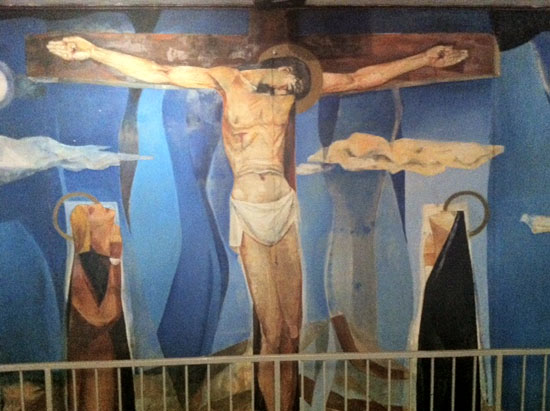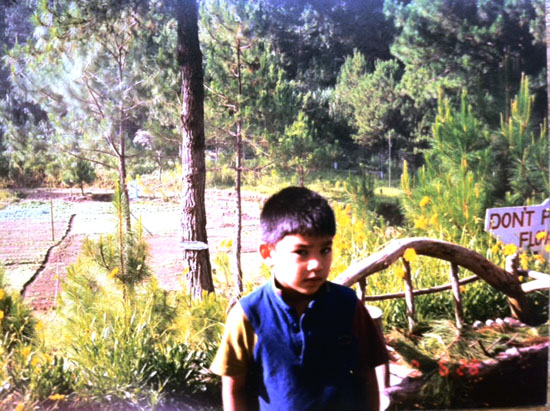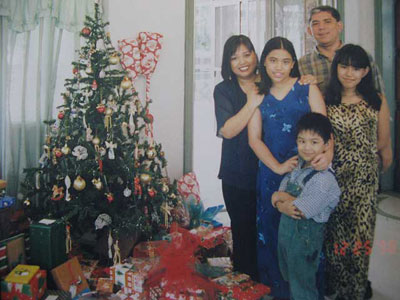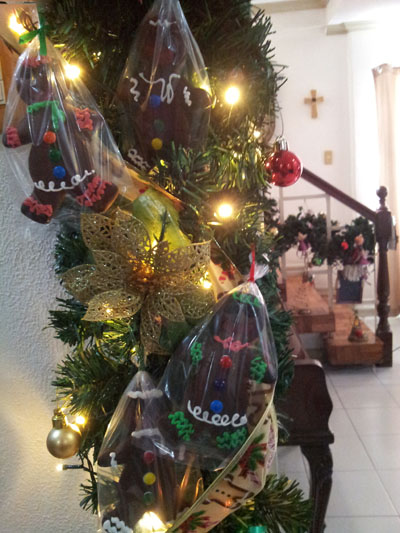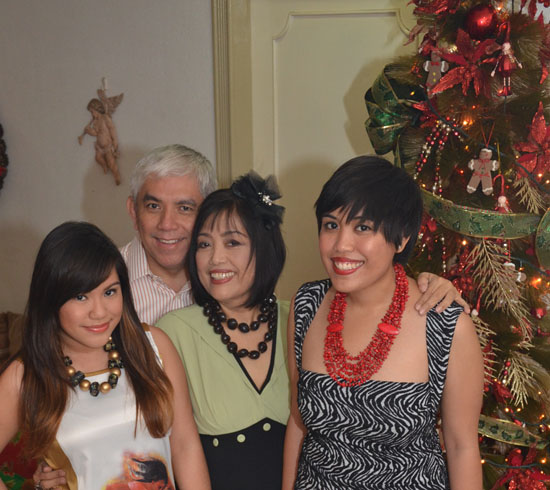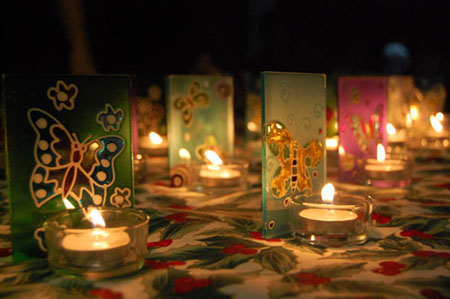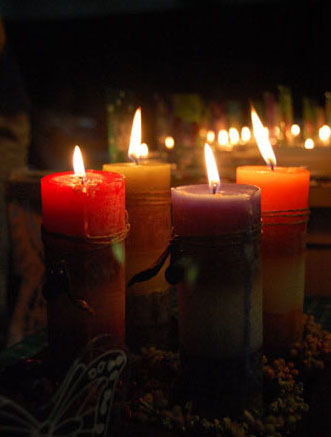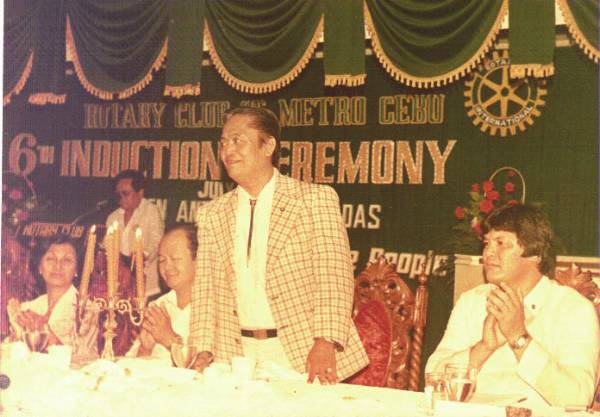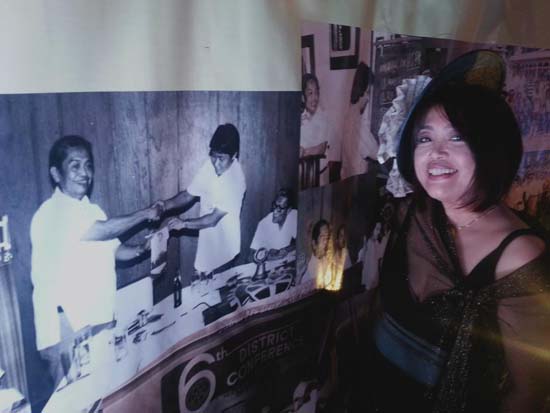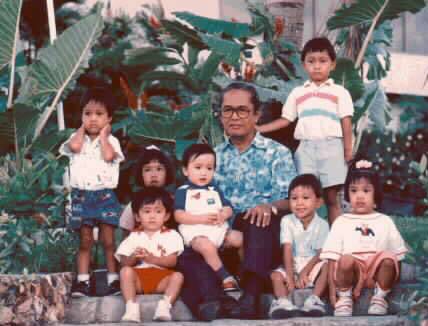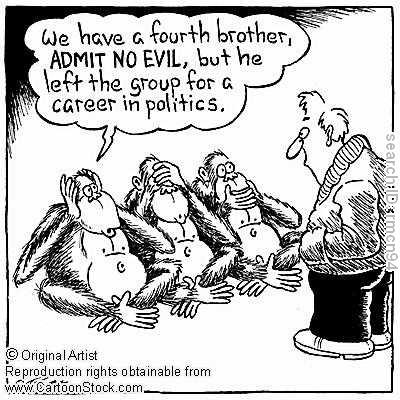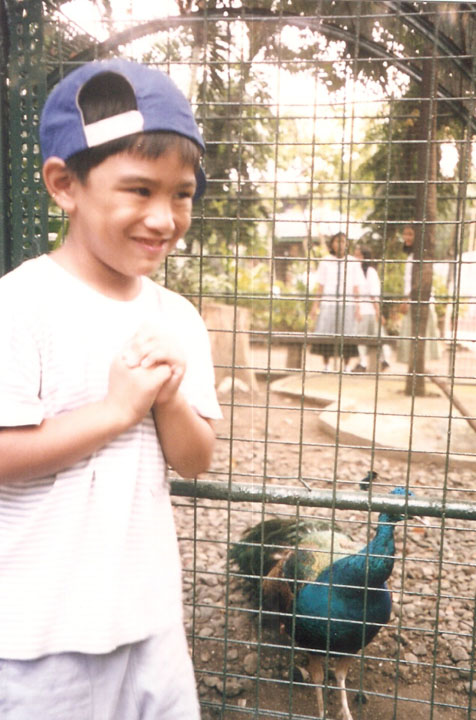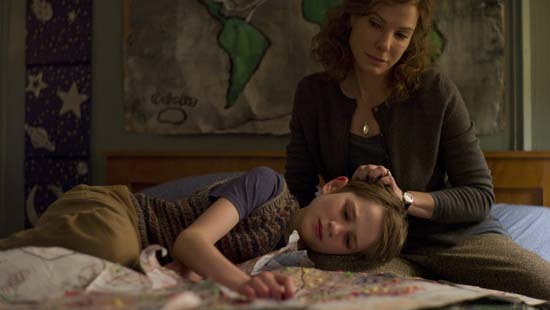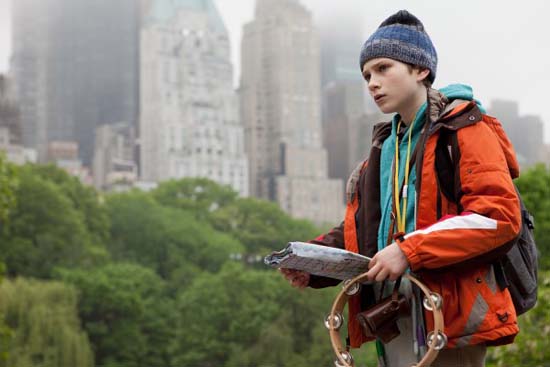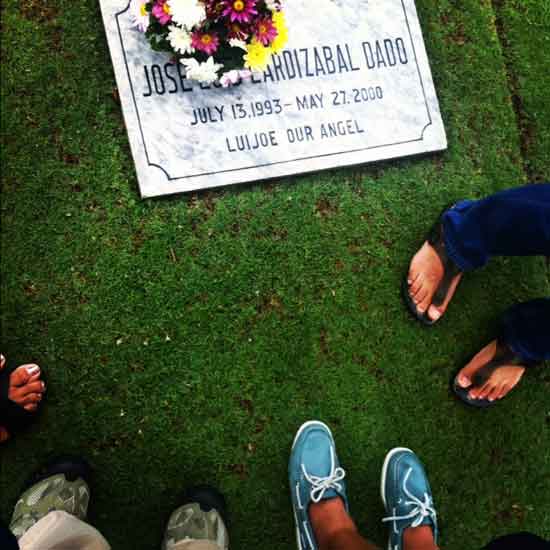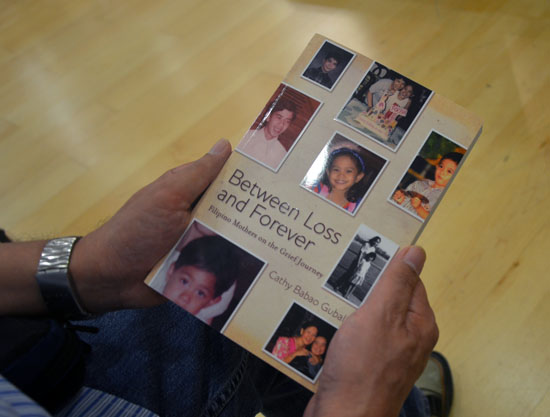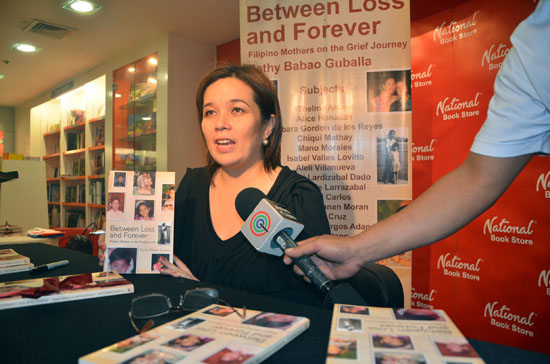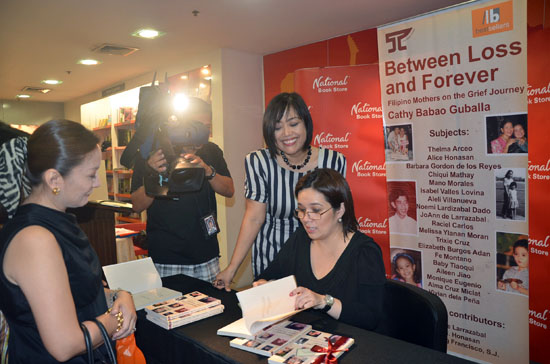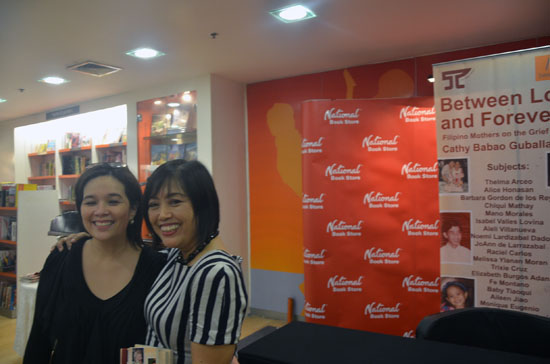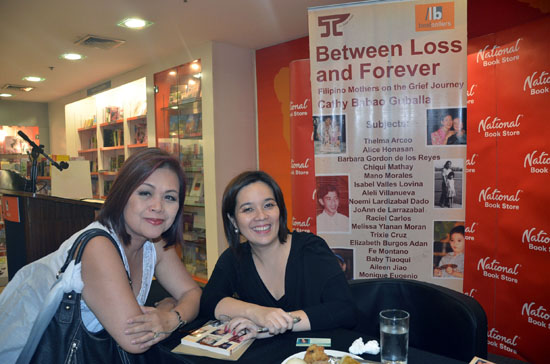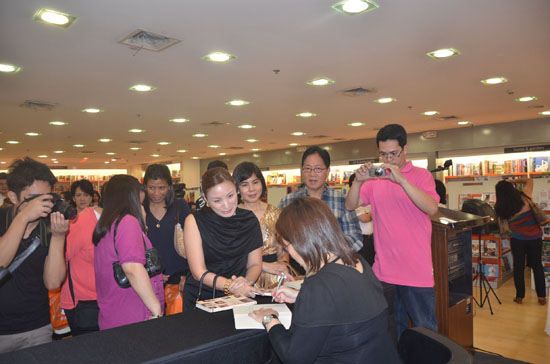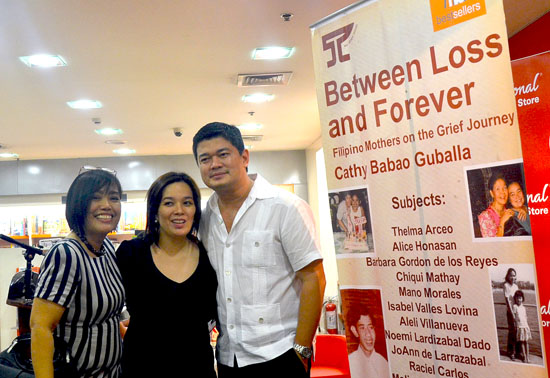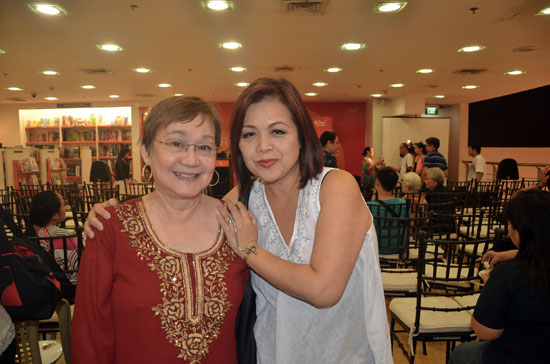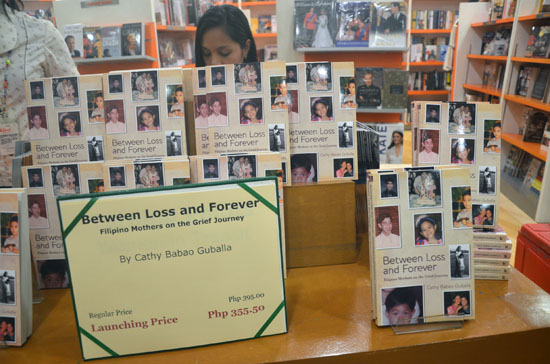My friend Cathy sent me this beautiful article , Butterfly Miracles, from Chicken Soup for the Soul: Grieving and Recovery by Jeanne Wilhelm. I know some of you who read my blog lost someone in their lives. I often use the butterfly as a symbol of hope . There is always a chance of a new life out there. This is what I often call the new normal, the life without our loved one. It takes time but life does move on to a new normal. These days you will catch me wear butterfly necklaces, butterfly earrings, butterfly on my dress or shirts. 
To live in hearts we leave behind Is not to die.
~Thomas Campbell, “Hallowed Ground”
I rummaged through the small cardboard box that passed for my jewelry box. On a mission to get rid of anything unworn, I gasped as my hand touched the metal butterfly  no bigger than a half dollar. Clutching it to my aching chest, the tears streamed down my face as I remembered.
Vivid images of the day my eight-year-old son presented the butterfly pin he’d made for me  my Mother’s Day gift  rushed to mind. I could picture Mark, round face, straight blond hair, as he smiled up at me. “Here, Mom, I made this for you in art class. I painted a design on it, but they baked it and the paint all ran together. I think it turned out neat!”
I prepared myself to receive a gift of love more than beauty as I unfolded the paper wrapped by childish fingers. A witty, personable, and fun-loving child, Mark did not seem to possess artistic talent. The butterfly, to my surprise, emerged a masterpiece of swirling copper, blue and beige hues.
“It’s beautiful,” I said with complete honesty. He accepted my hug with eyes rolling, as I murmured, “Thank you, honey. I love it.” He beamed with pride. I wore the pin frequently for years, often receiving compliments on its artistry.
One day, the back fell from the butterfly as I rushed to pin it to my lapel. I dropped the butterfly into the box in my drawer as I hurried to my appointment. I’ll have it repaired later, I thought.
Life was filled with family, school and work. The butterfly rested, forgotten, in the bottom of the box for more than ten years.
This day, the full force of the painful loss pressed into my chest. Eighteen months earlier, as I cradled my husband in my arms, I felt half of me slip away as he died. Now, the rest of my heart had been ripped from my chest as my 22-year-old son died while I held his hand  helpless again to keep cancer from taking one I loved. Mark had fought the disease with great courage and confidence. In the end his body betrayed him when his spirit would have kept on fighting. The deep, painful cavity inside me screamed for relief.
How I’d longed for a part of Mark to keep near. His cap, his keychain  none of his possessions had provided comfort  only more pain. But this butterfly, a gift made by his loving hands, held the promise of his continued presence with me. His life changed, like the caterpillar to the butterfly. He was no longer bound by ill health and earthly trials. The butterfly reminded me of this truth. The miracle of this gift, rediscovered after so many years, soothed my grieving heart.
The butterfly, coupled with a gold cross and attached to a delicate gold chain (a gift from my daughter), traveled the journey through grief with me. I wore it constantly, even in the shower. Along the way, sometimes the telling of the story brought comfort to another traveler. It also held the promise of change and healing for me, but in some irrational way, I felt to take it off would be to forget Mark and stall the healing.
One night, about a year after his death, I, who almost never remember a dream, had a startling and memorable one. I found myself standing on my front porch looking for someone. I saw a young man in the distance and as he trudged nearer, I recognized Mark  tired, sick and dirty  but Mark without a doubt. Stunned, unable to move at first, I threw my arms around him as he came up onto the porch.
Holding tight, I cried, “Mark, oh Mark, it is so good to see you. You’re not dead. I thought you were dead and you’re not. Oh Mark, Mark, I love you son,” I babbled.
He pulled back from me and said, “Mom, I love you. I have to go now and you must let me go. You must let me go, Mom. You can’t keep hanging onto me. Let me go now.” With that, for just a second, he appeared healthy and vigorous  almost glowing  then vanished.
I woke up feeling his embrace and hearing his words echo in my mind. I clutched the butterfly as tears streamed down my face. I raced to the front door to look for him and saw only an empty street. I started to grasp it was only a dream, but a strange peace crept into my darkness.
As I pondered the dream, I realized that in order to heal, to move on, I had to let Mark go  not forget, but refuse to cling to what might have been. The butterfly became the symbol. I started by taking it off to shower, then to sleep. Little by little I accepted my son’s departure from my life, but never forgetting what we’d shared. The awful pain and emptiness declined as I persisted in enjoying the memories of the occasions we’d spent together  not dwelling on the times we’d never have.
As my journey continued, the butterfly reminded me of the new life that awaited me. But when would that lingering ache in my chest depart? Five years passed. I believed that as long as I lived, the ache would remain. After all, I’d shed tears with women who buried children 60 years before.
On a walk one day, as I mulled over this “fact,” a butterfly fluttered toward me as if heaven-sent. Healing in his wings, I thought. And suddenly the ache was gone, replaced by joy for Mark reveling in all the glories of heaven.
Do I miss him? Yes. Is there sadness or a tear now and then? Yes. But there is a difference. The sadness no longer steals the joy away. Now when I wear the butterfly it is a symbol of victory over death and a new life not just for Mark, but for me as well. Clearly, more than one butterfly miracle came my way.
Source : You can subscribe the best of the Chicken Soup for the Soul

